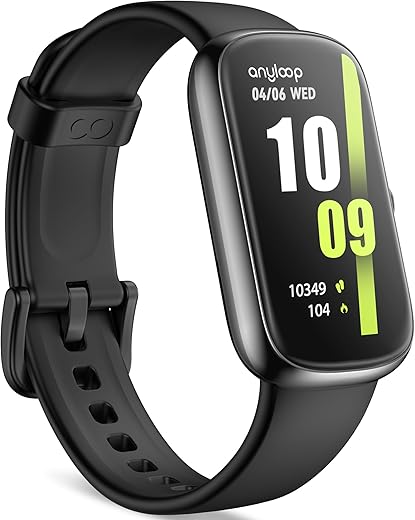
Fitness trackers for weight loss
In 2019, a study showed that those who used wearable technology during a weight loss program almost doubled their chances of achieving significant weight reduction compared to those who did not. Fitness trackers have been around for over a decade, evolving from basic pedometers that merely counted steps to sophisticated devices that monitor heart rate, sleep quality, and even stress levels. Their surge in popularity is largely due to the increased awareness and emphasis on personal health and fitness.
The journey of fitness trackers began with simple devices that aimed to encourage walking by tracking the number of steps taken throughout the day. Over time, these gadgets have transformed to include a variety of functions designed to support weight loss and overall health. Today’s fitness trackers can connect with smartphone apps and provide users with detailed data about their daily activity levels, dietary intake, and caloric burn, among other metrics. The ability to set goals and monitor progress in real-time has turned these devices into personal wellness coaches for many users.
Weight loss isn’t just about counting calories; it’s intricately linked to various aspects of wellness, including activity levels, sleep patterns, and even the intensity of workouts. Fitness trackers address these components by offering features like sedentary reminders, sleep tracking, and exercise recognition. They work by collecting data through built-in sensors that measure motion, heart rate, and sometimes even blood oxygen levels. This data is then used to provide feedback and insights that can inspire users to make healthier choices on a daily basis.
One of the most compelling aspects of fitness trackers is their ability to foster a community spirit through social features. Users can share their achievements, participate in challenges with friends or an online community, and celebrate milestones together. This gamification of weight loss can significantly boost motivation and accountability. For example, a survey revealed that 65% of users felt that social features in fitness apps helped them stick with their exercise routine.
As these devices continue to advance, they are expected to integrate even more deeply with our daily lives and health systems. For instance, some wearables are now capable of detecting changes in body temperature and heart rate variability, which can signal potential health issues, prompting timely medical consultations. These advancements suggest that fitness trackers might one day serve as an early warning system for health problems, in addition to being weight loss aids.
How Effective Are Fitness Trackers in Promoting Weight Loss?
Fitness trackers have revolutionized the way we approach weight loss by offering an array of features designed to monitor activity levels and provide insights on health trends. They serve as motivational tools that encourage users to stay active, track their progress, and achieve their weight loss goals through consistent monitoring of steps taken, calories burned, heart rate, and sleep patterns. Furthermore, fitness trackers can be synced with mobile apps to set personalized objectives, offer nutrition advice, and enable social interaction for added support. By analyzing the data collected, these devices assist individuals in understanding their physical habits and making informed decisions to improve their lifestyle. With sophisticated algorithms, they often provide valuable feedback and reminders to help users stay on track. To delve deeper, let’s explore how fitness trackers can be a pivotal part of your weight loss journey, the latest technological advancements in the market, and how to optimize their use for maximum benefits.
Continue reading to learn more about harnessing the full potential of fitness trackers to support your weight loss endeavors.
Effectiveness of Fitness Trackers for Weight Loss
Fitness trackers for weight loss have become increasingly popular as tools to help individuals monitor and achieve their fitness goals. These devices are designed to track a variety of activities and provide feedback that is essential for losing weight. By wearing a fitness tracker, users can monitor the number of steps taken, calories burned, heart rate, sleep patterns, and exercise intensity. The real-time data provided allows individuals to make informed decisions about their daily routines and exercise regimes.
Types of Fitness Trackers
There is a wide variety of fitness trackers available in the market, ranging from basic pedometers to advanced smartwatches with GPS functionality. Some are worn on the wrist, while others can be clipped to clothing or worn as a necklace. The choice of a fitness tracker depends on the individual’s budget, desired features, and personal preferences. Some prominent brands include Fitbit, Garmin, and Apple, all of which offer devices that cater to the specific needs of those looking to lose weight.
Key Features to Look for in a Weight Loss Fitness Tracker
- Calorie Tracking: This feature enables users to monitor the calories burned throughout the day, ensuring they maintain a calorie deficit for weight loss.
- Activity Monitoring: Trackers should be able to count steps, distance, and various types of physical activity to measure daily activity levels.
- Heart Rate Monitoring: Monitoring heart rate is crucial for understanding workout intensity, which can help optimize fat burning.
- Sleep Tracking: Quality sleep is essential for weight loss, and many fitness trackers can monitor sleep patterns to help users improve their sleep hygiene.
- Water Resistance: For individuals who swim or sweat heavily, a water-resistant tracker is important for accurate all-day tracking.
- Battery Life: With long battery life, users won’t have to frequently recharge their device, allowing for uninterrupted tracking.
Integrating Fitness Trackers into Weight Loss Routines
In order to use fitness trackers effectively for weight loss, they should be integrated into a comprehensive weight loss plan. This involves setting realistic goals based on the data collected by the tracker, such as daily step count or calorie burn goals. Users should also take advantage of the social features offered by many trackers, such as sharing progress with friends, which can increase motivation and accountability. Furthermore, syncing the fitness tracker with other apps or a nutrition diary can offer a more complete picture of health and progress.
Challenges and Considerations
While fitness trackers can be powerful motivators, there are challenges to consider when relying on them for weight loss. Accuracy can vary between devices and some types of activity may not be tracked well. Therefore, it’s important to choose a tracker that best fits the type of activity you do most. Users should also be wary of becoming too reliant on the data, which could lead to frustration and fixation on numbers rather than overall health and wellness.
Statistical Evidence on Fitness Trackers’ Impact on Weight Loss
Numerous studies have looked at the effects of using fitness trackers on weight loss. A study published in the Journal of the American Medical Association found that adults who wear fitness trackers may lose more weight than those not using them when combined with a weight loss plan. Specifically, the study showed an average difference in weight loss of about 5 pounds over the course of a year for those using wearable technology.
https://youtube.com/watch?v=WeWR1mWL5a0
1. How can a fitness tracker help with weight loss?
Fitness trackers can aid in weight loss by tracking daily activities such as steps taken, calories burned, and active minutes. These devices often offer motivational prompts and allow you to set and monitor progress towards goals, which can help maintain a consistent exercise routine.
2. Are all fitness trackers accurate in tracking calories burned?
Most fitness trackers provide an estimate of calories burned based on the user’s profile and activity level. While they use algorithms and sensors to give a reasonable approximation, they may not be 100% accurate for every individual. Factors such as the specific device model, its positioning, and personal physiology can affect accuracy.
3. Is it necessary to get a fitness tracker with heart rate monitoring for weight loss?
While not necessary, a fitness tracker with a heart rate monitor can offer more detailed insights into your workouts and calorie expenditure. Monitoring heart rate can also help ensure you are exercising within the optimal heart rate zones for fat burning and cardiovascular fitness.
4. What features should I look for in a fitness tracker to support my weight loss goals?
When choosing a fitness tracker for weight loss, consider the following features:
- Accurate step and calorie tracking
- Heart rate monitoring
- Activity-level tracking and goal setting
- Sleep monitoring
- Water-resistant design for swimming or sweaty workouts
- Connectivity to a mobile app or online dashboard for progress tracking
- Comfortable and stylish design for all-day wear
5. Can I link my fitness tracker to a weight loss app?
Many fitness trackers can be linked to third-party weight loss apps, allowing you to combine data from your tracker with your food intake and other health metrics for a comprehensive overview of your progress.
6. How often should I wear my fitness tracker to see benefits for weight loss?
For the best results, wear your fitness tracker consistently throughout the day and during all exercise sessions. Continuous wear allows the tracker to monitor your activity levels, provide accurate feedback, and help maintain awareness of your movement habits.
7. Can fitness trackers monitor my diet and nutrition?
Some fitness trackers allow you to log food and water intake manually or through integration with nutrition tracking apps. However, fitness trackers themselves do not automatically monitor diet and nutrition.
8. Will a fitness tracker still benefit me if I have a sedentary job?
Yes, fitness trackers can be particularly beneficial for those with sedentary jobs as they can provide reminders to move or stand after periods of inactivity, helping to increase overall daily activity levels which contribute to weight loss and general health.
9. How do I sync my fitness tracker data with my smartphone or computer?
To sync your fitness tracker with your smartphone or computer, you usually need to download the accompanying app or software. Follow the manufacturer’s instructions to pair the tracker with your device via Bluetooth or a wireless connection and transfer data.
10. Are fitness trackers worth the investment for weight loss?
Fitness trackers can be a valuable tool for those committed to losing weight, offering data-driven insights and accountability. However, a tracker’s value depends on how it is used—consistent wearing and engagement with the data is key to achieving weight loss goals.
Conclusion
Fitness trackers have undoubtedly revolutionized the approach to weight loss by offering personalized data that enables individuals to track their progress and make informed decisions about their health routines. Key insights reveal that users benefit from the real-time feedback on physical activity, diet, and sleep patterns, which are critical parameters in managing weight loss efficiently. The data provided allows for precise monitoring of calorie intake and expenditure, encouraging users to engage in more physical activity and to set attainable goals, fostering a sense of achievement that can motivate sustained behavior change.
However, it’s crucial to recognize that while fitness trackers serve as an excellent tool for weight loss, they are not a panacea. The success of these devices in aiding weight loss is highly dependent on the individual’s commitment to consistently utilizing the tracker’s features and to maintaining a healthy lifestyle. Users must combine the insights from their trackers with a balanced diet, regular exercise, and sufficient sleep to achieve the best outcomes. Despite these caveats, fitness trackers possess the potential to be a powerful ally on the journey to weight loss, providing the necessary support, encouragement, and accountability to help individuals reach their fitness goals effectively.







